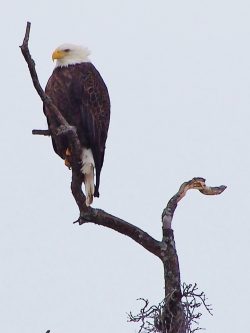January 2018—The U.S. Department of Interior has revised the Migratory Bird Treaty Act to exclude industries that accidentally kill migratory birds through business operations such as oil drilling and wind power generation. Previously, all killing (such as through hunting or industrial activities) of migratory birds without a permit was illegal. Under the new revisions, companies will no longer be legally liable for “incidental take” — accidental deaths of migratory birds as a result of business operations.
Proponents of the revision say that industries have already adopted practices to reduce fatalities so that original act was only resulting in operational inefficiency and litigation. Critics of the new rule say that the revision of the 100-year-old act will put already threatened and endangered birds in danger of extinction. Since the act’s inception in 1918, industry practices have changed to protect the birds. For example, oil and gas companies store their waste in closed containers to prevent birds from being trapped and killed in the waste. In another example, fishing companies reduced the number of seabirds being caught in nets by adding weights to the nets, which sank quickly to the bottom after being casted. In the airplane industry, many airports configured their runway lights so that they wouldn’t interfere with songbird activity.
Many companies have declared that they will keep up their bird-friendly business practices despite the new policy. [1]
Read more at https://www.smithsonianmag.com/smart-news/five-things-know-about-recently-changes-migratory-bird-act-180967646/
[1] Daley, Jason (2017, December). Five Things to Know about the Recently Changed Migratory Bird Act. Retrieved from https://www.smithsonianmag.com/smart-news/five-things-know-about-recently-changes-migratory-bird-act-180967646/.




